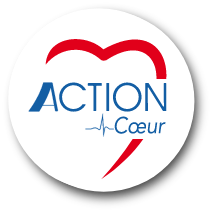Background and aim :
Potent pharmacologic inhibition of cholesteryl ester transferase protein by the investigational agent evacetrapib increases high-density lipoprotein cholesterol by 54% to 129%, reduces low-density lipoprotein cholesterol by 14% to 36%, and enhances cellular cholesterol efflux capacity. The ACCELERATE trial examines whether the addition of evacetrapib to standard medical therapy reduces the risk of cardiovascular (CV) morbidity and mortality in patients with high-risk vascular disease.
Study design :
ACCELERATE is a phase 3, multicenter, randomized, double-blind, placebo-controlled trial. Patients qualified for enrollment if they have experienced an acute coronary syndrome within the prior 30 to 365 days, cerebrovascular accident, or transient ischemic attack; if they have peripheral vascular disease; or they have diabetes with coronary artery disease. A total of 12,092 patients were randomized to evacetrapib 130 mg or placebo daily in addition to standard medical therapy. The primary efficacy end point is time to first event of CV death, myocardial infarction, stroke, hospitalization for unstable angina, or coronary revascularization. Treatment will continue until 1,670 patients reached the primary end point; at least 700 patients reach the key secondary efficacy end point of CV death, myocardial infarction, and stroke, and the last patient randomized has been followed up for at least 1.5 years.
Conclusion :
ACCELERATE will establish whether the cholesteryl ester transfer protein inhibition by evacetrapib improves CV outcomes in patients with high-risk vascular disease.






